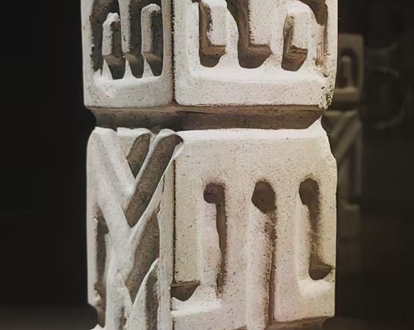(August 2019)
Diego Tapia Figueroa, Ph.D. and Maritza Crespo Balderrama, M.A.
«It’s not on any map. True places never are.»
(Herman Melville, Moby Dick)
Reflecting on the need for responsible self-care of therapists, social workers and the whole range of operators and professionals in the social field is always important because when it is given and practiced, the dialogical, generative, and transformative processes are created together and give meaning to meetings and work; when it does not occur, relational noise and mutual abuse are installed.
In this blog (Friday, May 4, 2018, «CARING FOR THE CAREGIVER FROM A SOCIAL CONSTRUCTIONIST STANCE»), we refer to this topic and invite you to review it, we hope it is useful to you. Now we present it, adapting these suggestions to our social constructionist language, (Ruiz, based on suggestions made by Kanfer and Schefft (1988) and Mahoney (1991); Ruiz, M.A., 1998. Therapeutic skills. In Vallejo, M.A. Ed. Madrid: Dykinson), which undoubtedly serve us for our practices:
- «Before starting a session, focus your attention (being present in full and with integrity) on the person you are about to receive, on the dialogue, and the relational process.
- Start the sessions with real curiosity, remembering that each conversation is a new conversation, which is woven in the context of the therapeutic relationship.
- Keep in mind that each therapeutic session can be the last, therefore, focus on the here and now, offer a «radical presence», with relational ethics, to the consultant, do not distract yourself or ramble or interpret unilaterally. The most important thing is the co-creation and construction of a relationship, of a connection (of transformative dialogue).
- Be aware of the complexity and context of each human being who arrives.
- Before starting any kind of dialogue, listen carefully to what the consultant’s words, feelings, attitudes, or thoughts are saying.
- Be emotionally present and connected to the suffering of the consultants and feel with them.
- In the dynamic dance of a consultant in a process of uncertainty, doubts, and reflection, learn to listen, understand, and be guided by what is important to the consultant.
- Before asking a question, try to be clear that the information you intend to obtain is relevant to the consultant’s process; if not, avoid formulating it.
- Except, when necessary, try not to ask questions that only require monosyllables since with this you may be promoting in the consultant the belief that the responsibility for the therapeutic process relies fundamentally on the therapist.
- Remember that as therapists, we dialogue through creative and meaningful questions, which connect with the latest that has just been said by the consultant.
- In therapy, the fundamental thing is the resolution of the consultant’s conflicts; therefore, it is he who has to invest more energy and effort in his transformation process. It allows him to do the meaningful work, to put into practice in his daily life and his relational contexts what he builds in therapy.
- Try to be clear and concise and not talk more than necessary. Do not give moralistic advice or sermons. As a suggestion: the consultant should speak more than the therapist. And learn to listen deeply, differently; listen to the silence without anxiety and give the consultant a new meaning.
- Respect the rhythm of the consultant and stimulate their decisions.
- Offer confidence and encouragement to your consultants to help them maintain their motivation. It fosters confidence in their abilities to alleviate their discomfort, improve their quality of life and advance in their process of building alternatives and possibilities in dialogue with their relationships and meaningful contexts.
- Do not offer or promise the consultant what you cannot fulfill.
- Accept the fact that your knowledge, in many cases, is limited; permit yourself not to know everything. Ask for help and supervision freely.
- When you get lost in a session and don’t know how to follow, take a moment to focus back on the relationship. Face your prejudices, question them. Put words to your fears. Ask and listen without interrupting.
- Listen to your internal dialogues (and, if they contribute to the process, share them with criteria in therapy) and ask the consultant about their own internal dialogues.
- Resist the urge to be seductive or overly kind and courteous. The objective of therapy is to accompany the consultant in what he needs, not to establish a beautiful relationship of friendship or to be considered charming or to be applauded.
- Be attentive to yourself and patient with your process. Try to know yourself enough so that your motives do not negatively influence the process of positive transformation of your consultants.
- Although the consultant needs to change meanings, emotions, or beliefs, he must continue to perceive the world through his own eyes, not through those of his therapist.
- Cultivate self-care routines and protect your private life. Have a life of your outside of work and enjoy it. Build meaningful relationships and pleasures (friendships, affections, hobbies).
- Establish a work rhythm that does not affect your professional performance and respect your limits. When tiredness, stress, or your problems influence your work, ask for help, seek therapy for yourself, with your partner or family; or retreat for a while if you need to.
- Respect and value the commitment to co-responsibility that you have acquired when exercising this profession and maintain your sincere confidence in the ability of people to overcome their difficulties and relational dilemmas if they are provided with the necessary accompaniment (with respect, curiosity, acceptance, flexibility, and legitimacy). «
In this reflective dialogue with questions asked from the complexity to embrace uncertainty, in this openness to diversity, in this transformative process, in this generative encounter: it is not about applying, imposing, teaching, or homologating the different with techniques, recipes, and protocols made of commonplaces, conformism and little intelligence of the experts on duty; rather, it is an invitation (trusting in the dialogical process, in the resources and strengths of the other) to weave and co-construct with the consultant new meanings, alternatives and creative social possibilities, new ones.

English translation of Bruno Tapia Naranjo


